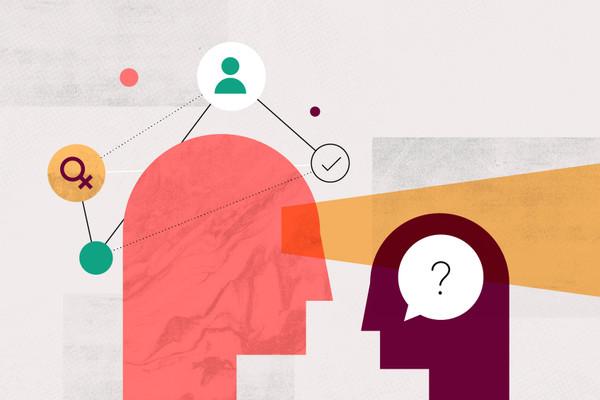Availability bias: the tendency to use information that easily comes to mind
Curated from: nesslabs.com
22
1
Explore the World's Best Ideas
Join today and uncover 100+ curated journeys from 50+ topics. Unlock access to our mobile app with extensive features.
What We Easily Recall, We Believe
As humans, our ability to make the right decisions is limited by the many constraints of our minds. One such constraint is the availability bias — our tendency to make judgments based on previous experiences that are easily recalled. When some piece of information is quickly brought to mind, we incorrectly assume that it’s an accurate reflection of reality.
This cognitive bias often leads to the illusion of rational thinking and, ultimately, to bad decisions.
26
372 reads
The History Of Availability Bias
In 1955, Dr Herbert Simon formulated the notion that memory limitations can affect decision-making. Simon further elaborated that it’s not possible for humans to consider every piece of relevant information. Instead, we focus on the data within our minds that’s readily available and thus seems to be the most pertinent.
Simon’s research opened the door to the modern examination of decision-making processes, and the shortcuts we utilise to reach conclusions.
19
288 reads
Demonstrating Availability Bias
There is a natural human tendency to assume that examples we can readily think of are more relevant than they truly are.
For example, if you’re looking for a new note-taking app, you might go for a particular tool because you recall that a friend recently raved about it. Or, if you read about a plane crash in the news a week before you are due to fly for work, you may overestimate the likelihood of your own plane crashing.
18
266 reads
Frequent Events Are On Top Of Mind
Availability is an ecologically valid clue for the judgement of frequency because, in general, frequent events are easier to recall or imagine than infrequent ones.
However, availability is also affected by various factors which are unrelated to actual frequency. If the availability heuristic is applied, then such factors will affect the perceived frequency of classes and the subjective probability of events.
Consequently, the use of the availability heuristic leads to systematic biases.
17
247 reads
Availability Bias Is Everywhere
Availability bias can also influence consumer’s beliefs about perceived risk. Availability bias can also impact self-evaluation.
Even doctors can misdiagnose patients as a result of the availability bias. A recent experience of a health condition makes it easier to recall and therefore increases the chance that a subsequent patient might be misdiagnosed with the same illness.
21
221 reads
How to Manage the Availability Bias: Deliberate Brainstorming
Instead of going for the most obvious solution, which is likely to be heavily influenced by your most recent experiences, conduct research and generate as many potential solutions as possible based on factual data. You can practise deliberate brainstorming on your own or with your team. This not only helps to manage availability bias, but may also lead to the generation of innovative solutions that you may not otherwise have considered.
19
203 reads
Try “Red Teaming” Ideas.
Red teaming is similar to playing devil’s advocate. It involves rigorously challenging ideas and assessing ideas from an opposing point of view to discover flaws or shortcomings. The aim is to avoid making unsound decisions and mitigate potential adverse events. As part of red teaming ideas, decision-makers should explore alternative solutions, interrogate the underlying facts, and try to view the decision from an impartial point of view to thoroughly test the integrity of a decision.
22
198 reads
Self Reflection
Self-reflection can take the form of journaling, talking out loud to yourself, or thinking deeply about a decision while away from distractions — for example while taking a walk. Taking time to reflect on decisions prior to executing them allows for a delay that will reduce the power of the availability bias, so that other ideas have the necessary space to surface.
20
169 reads
The Bottom Line
While the mind’s shortcuts make decision-making quicker and easier, they can lead to less-than-ideal solutions. As you have seen, the availability bias may lead to poor personal and professional decisions. While it’s impossible for this cognitive bias to be completely overridden, you can avoid some of its most negative effects by brainstorming, red teaming ideas, and implementing a self-reflection practice. These strategies will help you take a more objective view of the information available to you.
19
202 reads
IDEAS CURATED BY
CURATOR'S NOTE
What's in our mind already is preferred.
“
Camille A.'s ideas are part of this journey:
Learn more about leadershipandmanagement with this collection
How to create a positive work environment
Techniques for cultivating gratitude and mindfulness at work
How to find purpose in your work
Related collections
Similar ideas
4 ideas
5 Common Mental Errors That Sway Your Decision Making
jamesclear.com
9 ideas
Read & Learn
20x Faster
without
deepstash
with
deepstash
with
deepstash
Personalized microlearning
—
100+ Learning Journeys
—
Access to 200,000+ ideas
—
Access to the mobile app
—
Unlimited idea saving
—
—
Unlimited history
—
—
Unlimited listening to ideas
—
—
Downloading & offline access
—
—
Supercharge your mind with one idea per day
Enter your email and spend 1 minute every day to learn something new.
I agree to receive email updates









